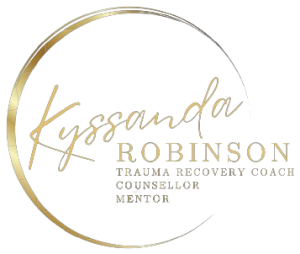If you are a woman who has recently ended a relationship with a narcissistic partner, you may be struggling with emotional wounds that are difficult to heal. Narcissistic abuse is unfortunately more common then we realise, and you are certainly not alone. Education around the effects of narcissistic abuse is becoming more readily avaiabe as we are understanding more why our body and behaviours are so effected, as it can cause deep trauma that can be challenging to overcome. However, with the right tools and support, you can find peace and healing.
What is Narcissistic Abuse?
Narcissistic abuse is a form of psychological and emotional abuse that is characterized by the manipulation and exploitation of a victim’s vulnerabilities and insecurities. Narcissistic abusers often use various tactics to undermine their partner’s sense of self-worth, including manipulation, gaslighting, projection, and belittling.
This can look like;
Manipulation: Narcissistic abusers are masters of manipulation and will use any means necessary to control their partner. This can include lying, withholding information, or twisting the truth to suit their own needs. For example, a narcissistic abuser might make their partner feel guilty for not doing something they wanted, or they might use flattery or charm to get their partner to do what they want.
Gaslighting: Gaslighting is a form of psychological manipulation in which the abuser seeks to sow seeds of doubt in their partner’s mind, making them question their own memory, perception, or sanity. A narcissistic abuser might deny that something happened or make their partner doubt their own recollection of events. For example, a narcissistic abuser might say, “I never said that,” when their partner clearly remembers them saying it.
Projection: Projection is a defense mechanism in which the abuser projects their own flaws, shortcomings, and negative qualities onto their partner. A narcissistic abuser might accuse their partner of being selfish, lazy, or uncaring when, in fact, it is the abuser who exhibits those traits. For example, a narcissistic abuser might say, “You never listen to me,” when they are the ones who never listen to their partner.
Belittling: Belittling is a form of emotional abuse in which the abuser seeks to undermine their partner’s self-esteem and confidence by making them feel small, insignificant, or unworthy. A narcissistic abuser might use insults, sarcasm, or mockery to belittle their partner. For example, a narcissistic abuser might say, “You’re too stupid to understand,” when their partner expresses an opinion that the abuser disagrees with.
What are Trauma Bonds?
Trauma bonds are emotional attachments that develop in abusive relationships, and they can be incredibly powerful and difficult to break. These bonds are formed when the victim’s brain starts to associate the highs and lows of the abusive relationship with pleasure and reward, creating a cycle of addiction that keeps the victim coming back to the narcissistic abuser.
The science behind trauma bonds is based on the neuroscience of attachment and reward. The brain is wired to seek out social connections and to associate those connections with pleasure and reward. In healthy relationships, this means that positive social interactions, such as hugs, laughter, and affection, activate the brain’s reward system, releasing feel-good chemicals like dopamine and oxytocin.
Over time, the brain begins to associate those positive social interactions with pleasure and reward, creating a strong emotional bond between the individuals.
However, in abusive relationships, this reward system becomes distorted. The narcissistic abuser may use intermittent reinforcement, alternating between kindness and cruelty, to keep the victim in a constant state of uncertainty and anxiety. When the abuser shows kindness, the victim experiences a surge of pleasure and reward, activating the brain’s reward system. However, when the abuser shows cruelty, the victim experiences fear and pain, activating the brain’s stress response.
This cycle of pleasure and pain creates a powerful addiction, as the victim’s brain begins to associate the highs and lows of the abusive relationship with pleasure and reward. Over time, this addiction can become so strong that the victim feels unable to leave the relationship, even if they know it is unhealthy and dangerous.
Breaking free from trauma bonds is essential for healing from narcissistic abuse. This can involve therapy, support groups, and other forms of emotional and psychological support. It is important to remember that healing from trauma bonds is a process, and it can take time and effort to overcome the addiction and regain control over your life.
Steps to Healing from Narcissistic Trauma
- Go No Contact – Cutting off all communication with your abuser is essential for breaking free from the cycle of abuse and allowing yourself to heal.
- Seek Support – Having a support system is crucial for healing from narcissistic abuse. This can include friends, family, support groups, or a therapist such as myself, who specializes in trauma and abuse recovery.
- Practice Self-Care – Self-care activities such as exercise, meditation, journaling, or spending time in nature are essential for physical and emotional well-being.
- Challenge Negative Thoughts – Challenging negative beliefs about yourself and the world around you is crucial for healing. Writing down negative thoughts and then challenging them with evidence that contradicts them can be helpful.
- Set Realistic Expectations – Healing from narcissistic abuse is a journey, not a destination. Be kind to yourself and celebrate small victories along the way.
Conclusion
Overall, narcissistic abuse is a complex and insidious form of emotional and psychological abuse that can have long-lasting effects on the victim’s mental health and well-being.
Healing from narcissistic trauma is a complex process, but seeking support can be helpful in your journey towards healing. As an experienced therapist specializing in trauma and abuse recovery, I can provide the guidance, tools, and support you need to break free from the cycle of abuse and find peace and healing.
Book a session with me today and take the first step towards healing.
As an experienced therapist who specializes in trauma and abuse recovery, I can provide the guidance, tools, and support you need to break free from the cycle of abuse and find peace and healing.
Through our sessions together, we will work together to help you understand the effects of narcissistic abuse, break free from trauma bonds, and develop the skills and strategies you need to move forward with confidence and resilience.
I encourage you to take the first step towards healing by booking a session with me today.
Together, we can overcome the effects of narcissistic abuse and help you live the life you deserve.
Useful Resources
Narcissistic Abuse Support Australia (https://narcissisticabusesupport.com/): This is an organization that provides support, education, and resources for those who have experienced narcissistic abuse in Australia. They offer online support groups, a forum, and a directory of therapists who specialize in narcissistic abuse recovery.
Blue Knot Foundation (https://www.blueknot.org.au/): Blue Knot is a national organization that provides information, resources, and support for adult survivors of childhood trauma, including narcissistic abuse. They offer a helpline, online resources, and professional training for those who work with survivors of trauma.
1800RESPECT (https://www.1800respect.org.au/): 1800RESPECT is a national helpline for those experiencing domestic violence and sexual assault. They provide confidential support, information, and referrals to local services.
Relationships Australia (https://www.relationships.org.au/)
Relationships Australia is a national organization that provides a range of services to support healthy relationships, including counseling and education programs. They may be able to provide support and resources for those who have experienced narcissistic abuse in their relationships.


